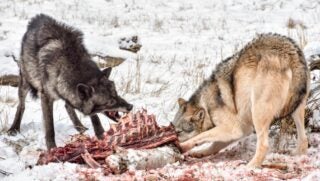In the agriculture industry we are constantly under attack. Whether about fertilizer usage, how we raise our livestock, or water conservation, we are always in dialogue — standing up for ourselves and our practices is nothing new. What is new however, is a recent study released from the EAT-Lancet Commission. Not only are they calling for a reduction in red-meat consumption (been there, fought that fight), but they are also calling for a radical restructuring of our diet and agriculture practices.
Their objective is simple: create a diet rich in plant-based foods by eliminating red meat as an option while also halting agriculture expansion to tackle the carbon footprint left by ag. So simple they don’t even have a plan.
This report is a gross misrepresentation on many fronts. First off, they are using fear tactics left and right. For example, “Delaying action will only increase the likelihood of serious, even disastrous, consequences.” But they never use any hard-hitting science. Here is a whole article dedicated to calling out the one-sided report, which lacks any real scientific trials. It indicates the report does not cite a single clinical trial to support any of its ideas, which are all mainly vegan/vegetarian.
The report uses weak science to correlate heart disease and obesity with red meat. Check out this two page scientific report to see that there is under a 2 percent relative risk, which is too small to establish a correlation.
Secondly, the proposed “healthier” diet is in fact, not a healthy option. In the report it stresses the need for a nearly vegan diet. I believe everyone who has educated themselves on their own individual needs, and consulted with their doctor, has the free will to fuel their body in how they see fit. However, do I think a whole population should be forced to eat what the authors suggest? Of course not!
The science behind a vegan diet is not strong or substantial. The Dietary Guidelines for Americans already suggest more fruits and vegetables, in conjunction with animal proteins — a healthy balance between the two. If we were to follow the EAT-Lancet report, we would be eating an unhealthy amount of fats and sugars just to receive the necessary protein for our bodies. Even still, plants are too often unable to make up for the lost vitamins and minerals, so you must take supplements as well. Sounds very economical …
I believe we have proved that the suggested radical diet is irresponsible and unrealistic. The agriculture side of this report is just as troubling. It is obvious that none of the 37-member group had a strong agriculture background. They talk as if in the snap of your fingers, we will be able to “close yield gaps of up to 75 percent, radical improvement in fertilizer and water use efficiency, recycling phosphorous, and implementing climate mitigation options including changes in crop and feed management.” Yet not explaining how to execute those ideas.
They plan to implement a zero-expansion policy of new agricultural land into natural ecosystems. Well newsflash, agricultural land in the U.S. is on the decline — while also increasing productivity — and being over taken by expanding suburbs and new constructions sites. We realize the need to save natural lands.
They want to switch out the grain-fed animals for grain-fed humans. This fits perfectly in line of their ideals to eliminate the use for livestock. Do they also forget about how sustainable agriculture has become? They do not mention that crops can also be used for renewable energy.
Just when you think the report has totally been written off as garbage, you wonder where they got the money to do a three-year study. So, you follow the money. Co-author, Walter Willett, has an extensive list of potential conflicts of interest both financially and ideologically. In addition, they received funding from their founder and executive chair, Norwegian billionaire and animal-rights activist, Gunhild Stordalen.
The take away: This report did nothing but reassure me that a balanced diet is the best. Yes, I should have greens on my plate, but they are also going next to my juicy, medium-cooked steak. From the guidelines, I know I need a balance of both to get what my body needs. As far as their radical environmental views, farmers are doing everything they can to adhere to the most up to date and environmental guidelines. Here is a radical idea for change: Get outside. Maybe our increasing obesity rate has more to do with less home cooked meals and limited active time than it does with how our food is raised.



